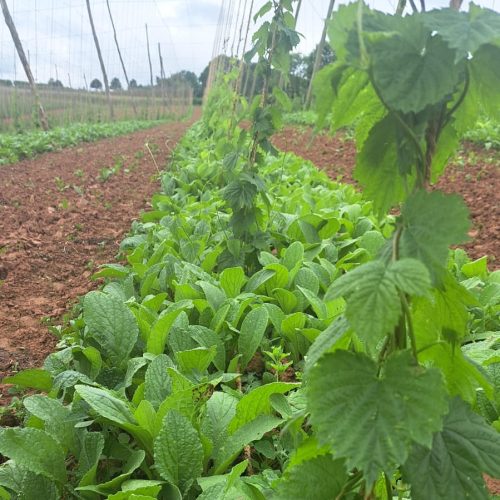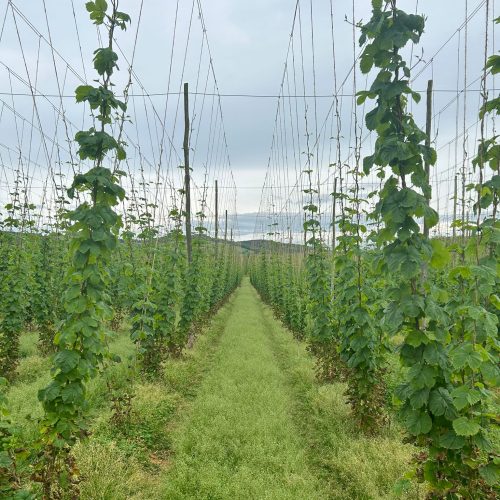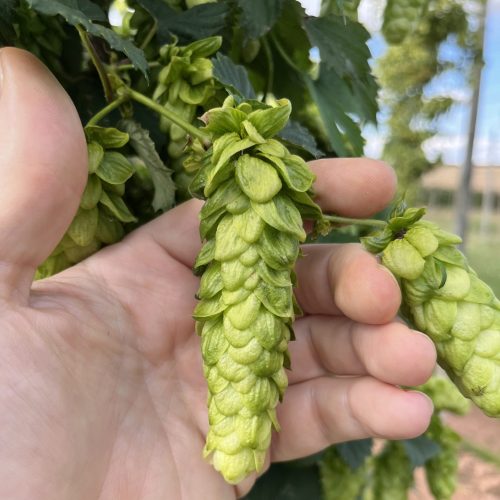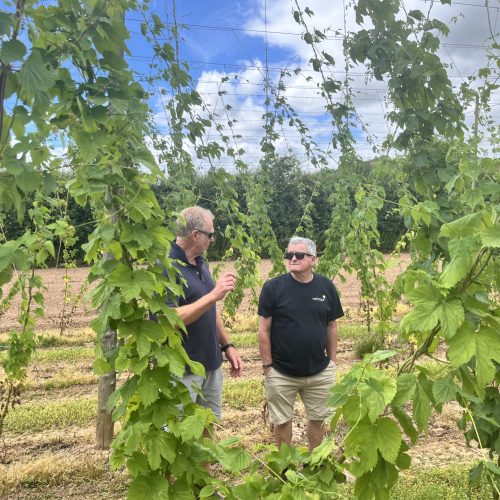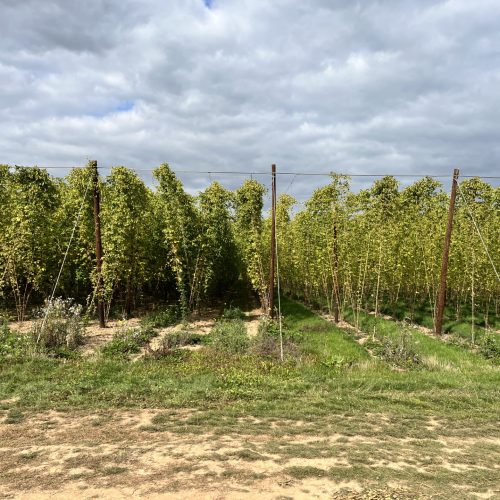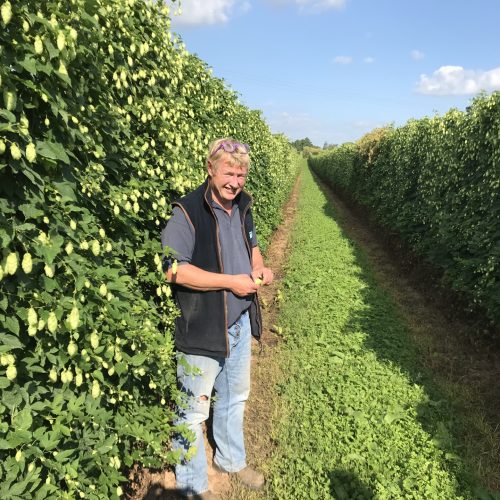Growing a Resilient Future for British Hops

Driving Innovation Through Collaboration
Once the lifeblood of Britain’s brewing industry, hop farming in the UK is now on the brink. With only 45 growers left, the sector faces climate threats, soil degradation, and disease. Without sustainable solutions, a centuries-old tradition risks extinction
That’s where FOR HOPS UK comes in, we believe if we can find solutions to some key challenges, with our temperate climate, the UK has the potential to be the most sustainable hop growing region in the world.
FOR HOPS UK initiative brings together scientists, farmers, and industry leaders to explore innovative ways to enhance the sustainability of hop production. Through two groundbreaking PhD research projects, we are investigating the power of biochar and wildflower interventions to improve soil health, suppress plant diseases, and boost carbon storage—supporting hop growers on the journey to net-zero farming.
A United Effort for a Sustainable Future
FOR HOPS UK is supported by Asahi UK, the British Hop Association, Charles Faram & Co Ltd, and researchers from the Royal Agricultural University and University of Warwick. By bringing together expertise from academia and industry, we are creating a shared knowledge base and forging a path toward more sustainable hop farming.
The team in the UK will be exchanging knowledge with the FOR HOPS project in Czechia who are also looking into the use of biochar and wildflowers in hop farming.
Why This Matters
British hop farms currently rely on practices that leave soil exposed, reducing its natural defences against disease while releasing carbon into the atmosphere. The spread of Verticillium Wilt, a devastating plant pathogen, that can wipe out entire crops if left unchecked. At the same time, sustainability goals in agriculture are more pressing than ever, with the UK targeting net-zero emissions for farming by 2040.
Our research, driven by close partnerships with hop growers and industry experts, aims to:
- Improve soil health and microbial diversity.
- Reduce the incidence of Verticillium Wilt on hop crops.
- Enhance carbon storage in hop-growing soils.
- Develop wildflower interventions to support biodiversity and natural pest control.
- Provide farmers with practical, science-backed sustainability solutions.
Study 1: Biochar for Soil Health and Disease Suppression
Investigating biochar as a game-changer for British hop farming
Biochar, a carbon-rich material inspired by the fertile terra preta soils of the Amazon, is renowned for improving soil health and microbial life. It’s use offers a circular solution to the problem by using the waste bines the harvested hops on to create the biochar itself. Yet biochar’s role in hop production—a high-input, disease-prone crop—remains uncertain. This study explores whether biochar can bring resilience to the system by:
- Improve soil microbial diversity, enhancing natural disease resistance.
- Suppress Verticillium Wilt, a major threat to hop yields.
- Enhance nutrient and water retention, reducing inputs and improving sustainability.
- Store carbon in the soil, contributing to net-zero farming targets.
The research involves controlled glasshouse experiments to test different biochar types and application rates, alongside field trials in partnership with British hop growers. Results will inform best-practice guidelines for integrating biochar into hop production systems, providing growers with an innovative tool to improve resilience and sustainability.
Study 2: Wildflower Interventions for Sustainable Hop Production
Harnessing biodiversity to support soil health, pest control, and sustainability
Hop growers typically maintain bare alleyways between rows of bines to prevent competition for resources and reduce the risk of Verticillium Wilt. However, bare soil leads to carbon loss, soil erosion, and biodiversity decline. This study explores an alternative: the introduction of wildflower strips to improve sustainability without compromising yields.
Key objectives of the research include:
- Identifying wildflower species that can thrive in hop yards without increasing disease risk.
- Evaluating the impact of wildflower strips on soil health and carbon storage.
- Assessing whether wildflower strips can reduce pesticide use by supporting natural pest predators.
- Measuring the benefits for wider biodiversity, including pollinators and beneficial insects.
A rigorous screening programme will identify the best-suited wildflower species, followed by field trials to test their impact on hop production. The study will also assess innovative management techniques, such as maintaining wildflower strips at a controlled height, to minimize competition with hop bines while maximizing biodiversity gains.
Join Us on the Journey
If you would like to know more about the project or you are interested in getting involved please email us at ForHops@rau.ac.uk


